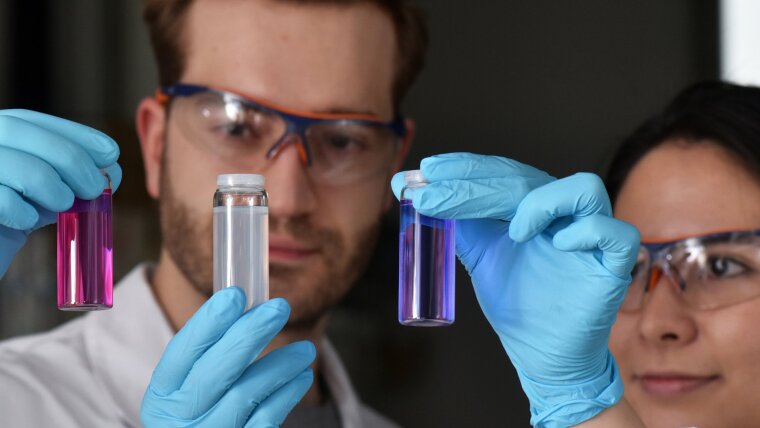
- Light
Published: | By: Axel Burchardt
Source article
Starting this month, the German Federal Ministry of Economic Affairs and Climate Action is funding a joint project to research efficient and safe special lipids for mRNA drugs with a two-digit million euro sum for three years. Partners in the research alliance are the universities of Jena, Würzburg and Dortmund, the start-up company NGP Polymers in Jena, and the companies Bayer, Evonik and ISAR Bioscience.
Since the Corona pandemic, the usefulness of ribonucleic acids (RNA) or messenger RNA (mRNA) for the production of highly effective vaccines has been undisputed. Now the partners from industry and science want to investigate whether other new drugs can also be developed on this basis, as well as whether the few allergic reactions associated with vaccinations can be reduced.
Developing novel special lipids for RNA drugs
Compared to RNA-based vaccines, new compositions of the drugs are needed to deliver the new medications to the disease site in a targeted manner. To do this, the RNA will be packaged in innovative solid-lipid nanoparticles with polymer excipients. The nanoparticles should stably encapsulate the RNA drugs and deliver them to specific organs that were previously difficult to reach, where they are released after cellular uptake. The goal is a tissue-specific effect. And finally, the special lipids should ideally be such that they can be completely degraded or excreted by the body after release of the RNA.
The German Federal Ministry of Economics and Climate Action, through its project management organization VDI/VDE, will fund the research consortium coordinated by ISAR Bioscience with close to 13 million for three years. Of this amount, Friedrich Schiller University Jena will receive just about 1.6 million euros and its spin-off Next Generation Pharma Polymers GmbH (NGP Polymers GmbHExternal link) will receive 2 million euros. The start-up company moved into an office on the spin-off floor of the Center for Energy and Environmental Chemistry (CEEC Jena) at the University of Jena in November 2022 with its first three employees - all graduates of the University of Jena. It plans to move in the new incubator lab2fab building of the Technology and Innovation Park (TIP) Jena after the completion in 2024.
The project commitment is part of an initiative to promote RNA-based technologies. These are to be further advanced in Germany and corresponding production facilities built so that the reagents required for vaccines needed in the future, as well as for new RNA drugs, can be produced quickly in the country.